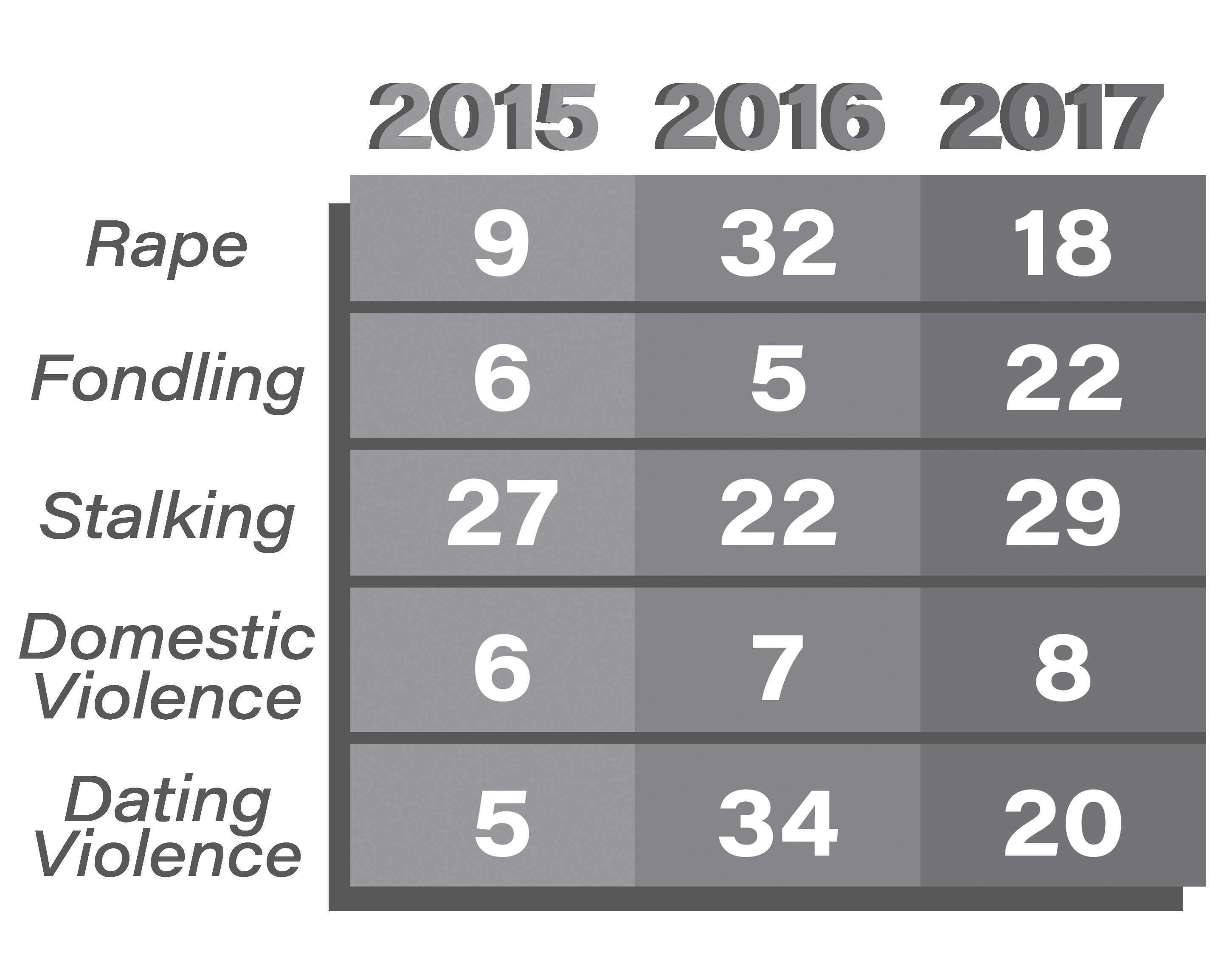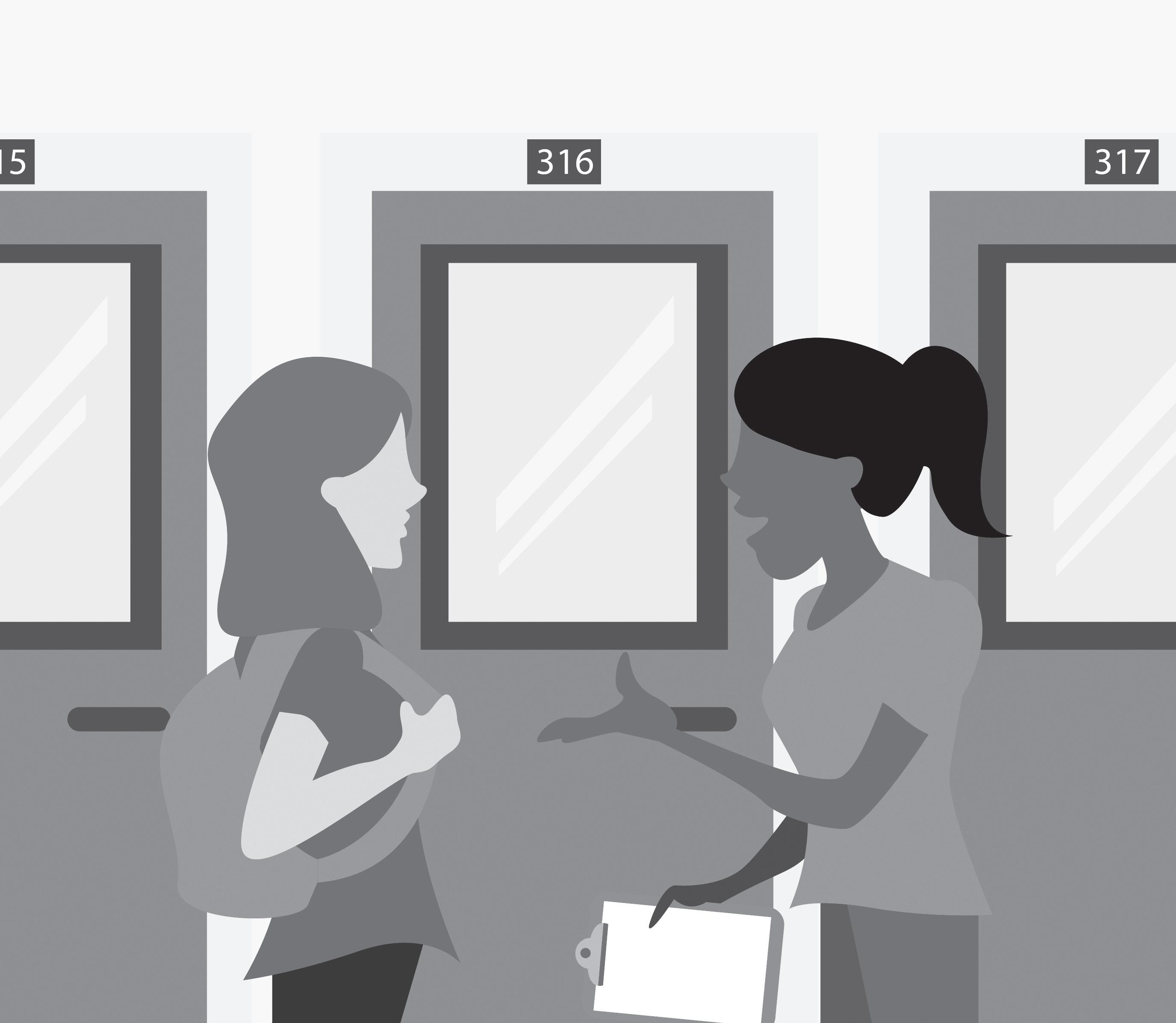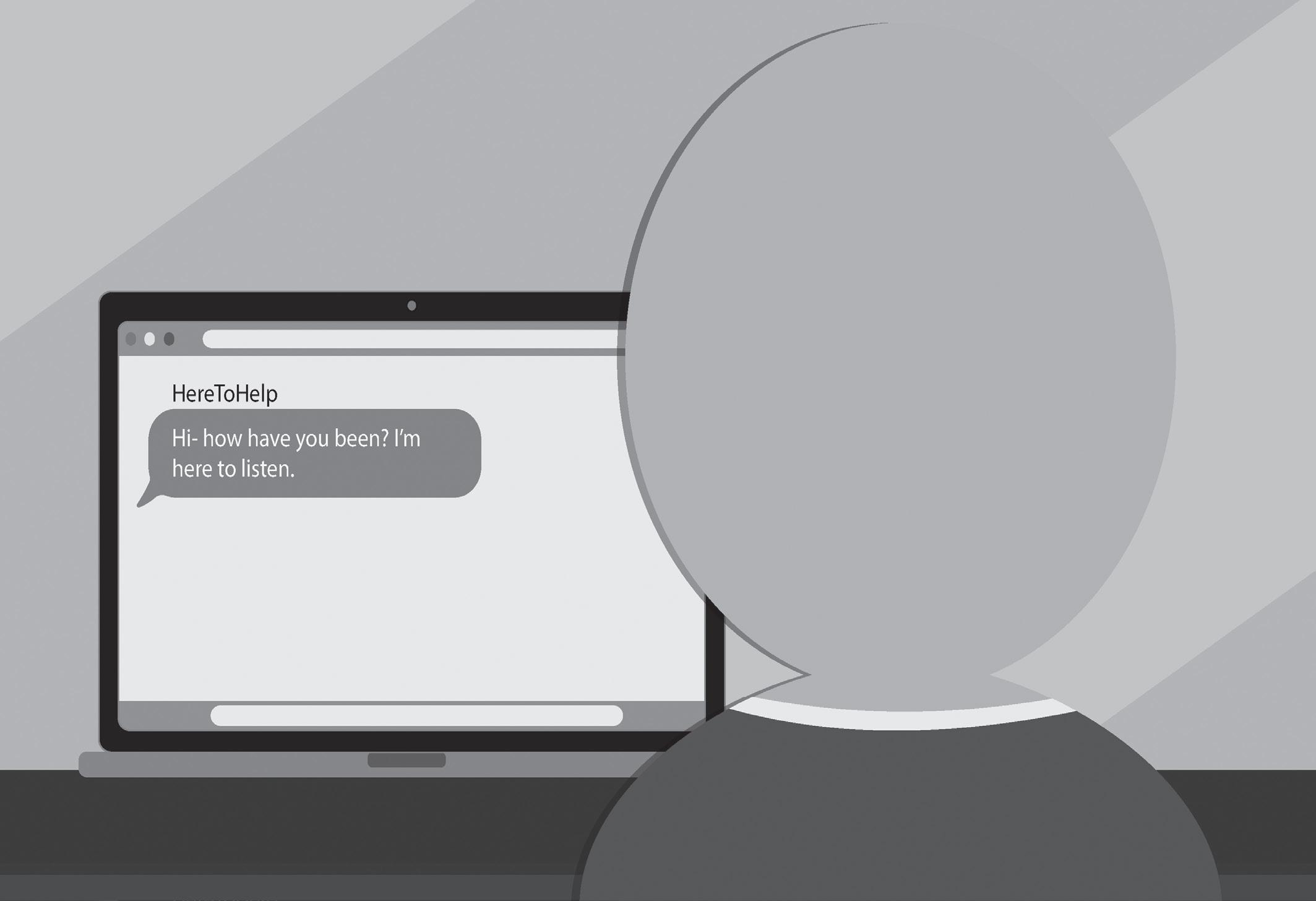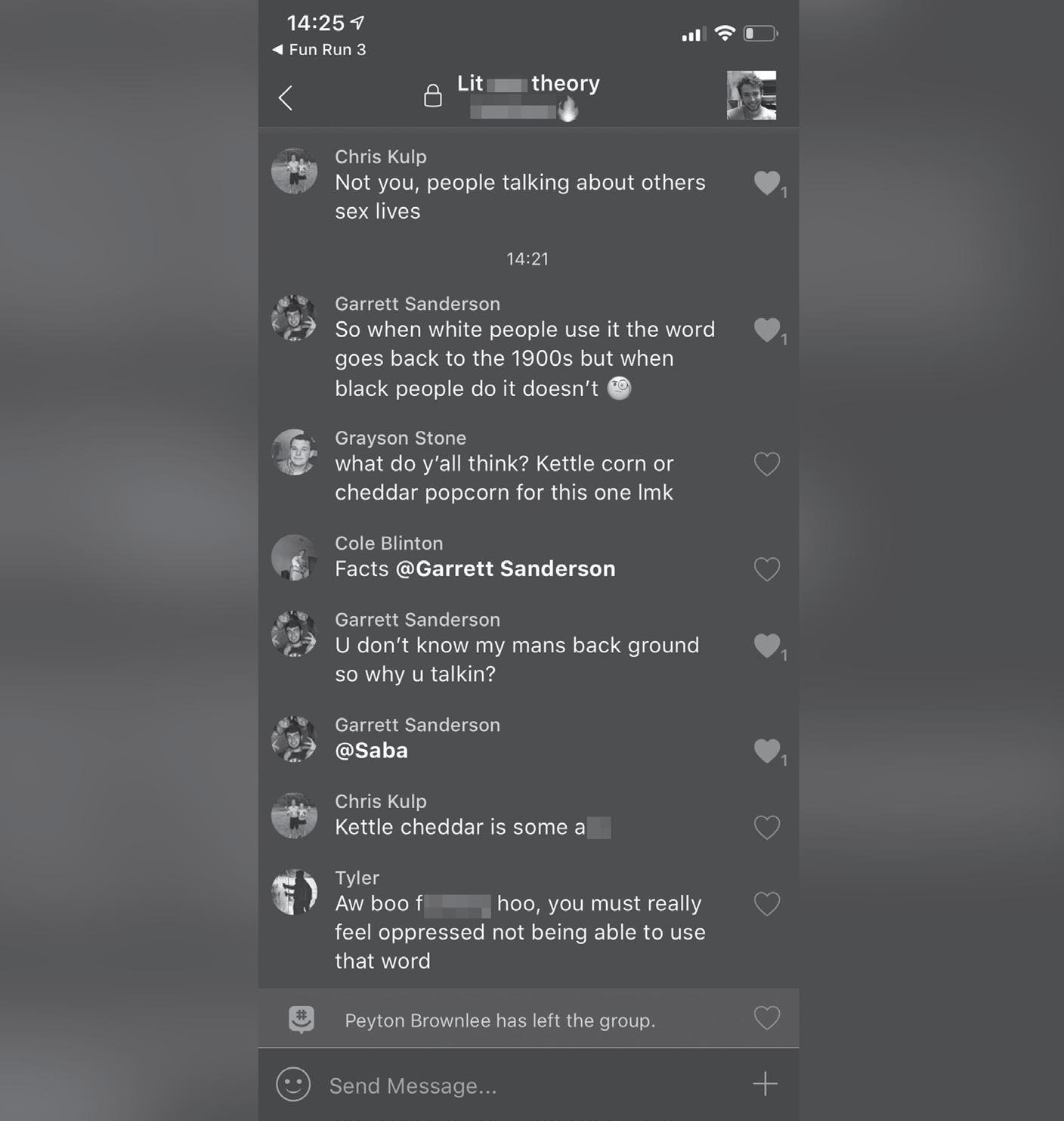
18 minute read
Trends show increased reporting of sexual assault on campus
News
TECHNICIAN
Advertisement
PAGE 3 • THURSDAY, JANUARY 24, 2019
Trends show increased reporting of sexual assault on campus
Amber Detwiler
Staff Writer
More student survivors are reporting incidents of sexual assault on campus, giving campus community centers more data and ability to provide survivors with resources they may need during the reporting process.
The 2018 Security & Fire Safety Report, released in fall 2018, displays the 2017 crime and fire data that occurred on university property, with two preceding years as well.
Major Ian Kendrick, support services commander of the NC State University Police Department, explains what this data means in terms of sexual assault statistics, the general trend being an increase in number of incidents reported on campus.
Janine Kossen, associate director of the Women’s Center, said that sexual assault is the most underreported crime in the U.S. and in the greater community, less than 40 percent of sexual assault incidents are reported. On college campuses less than 10 percent are reported.
“It is really important to know that any type of interpersonal violence – rape, stalking, domestic violence, and dating violence – is vastly underreported, especially on college campuses,” Kossen said. “A lot of times, what people see when they are looking year-to-year is this jump, or increase, and they think that means campus is less safe. It is actually a good thing when the numbers go up because it means [survivors] trust the system, they feel safe coming forward, and they feel supported.”
Based on the Security & Fire Safety Report, incidents of rape went from 9 to 32 to 18, stalking from 27 to 22 to 29 and dating violence from 5 to 34 to 20 in the years 2015-17 respectively. In 2016, one individual reported being raped approximately 20 times by an individual with whom they were in a dating relationship, this being reflected as 20 separate incidences in the 2016 rape and dating violence statistics due to the Clery Act.
“The Women’s Center, from our data, we have just last semester had more cases of students coming to us than all of the previous academic year,” Kossen said. “A lot of that is a direct result of the larger culture. Last year, October/November was a huge peak for us with the Women’s Center, which correlated with the beginning of the #MeToo movement.” Many survivors still face barriers coming forward, ranging from victimblaming to simply not knowing how to do so. Kossen said that trend analysis from the Women’s Center over the past three years showed that counseling support and academic accommodations have been the two most requested resources among survivors who reach out to the Women’s Center.
“You can go to places like the Women’s Center to report, you can report to your RA if you live in a residence hall, you can report to someone at the [GLBT] Center,” Kendrick said. “What we are interested in is survivors getting the information to someone they trust, whether they want to prosecute or not, or whether they want the police to get involved or not, the first step is getting the information to someone they trust. Ultimately that will start leading into being connected with resources: getting assistance for the trauma, getting medical assistance perhaps, counseling, you name it, but that is the first step.”
Kendrick said that survivors who choose to speak to a Campus Security Authority, which is typically a trained professor or resident advisor, may remain anonymous in that Authority’s report to campus police.
“If a survivor wants the police involved, great,” Kendrick said. “We will absolutely sit down and open the investigation. Through the investigation, the survivor still has the option to prosecute the case. If they don’t prosecute, no problem, but we always have the option from the university to send someone to Student Conduct.”
Kendrick said that while statistically it is more likely that a survivor is not interested in prosecuting, he would ideally like to see every survivor prosecute a case in order to remove offenders from campus.
“The key is to report it,” Kendrick said. “Go to somebody you trust and are comfortable talking to, and just start the process of talking about it and getting connected to resources.”
If a student is experiencing relationship violence, sexual violence or stalking, and is in need of advocacy services, the Women’s Center has advocates available from 8 a.m.-5 p.m. Monday-Friday in room 5210 of Talley Student Union. After-hours, students can call the 24/7 Sexual Assault Helpline at 919-515-4444 to be connected with an advocate.
Students can visit Safe at State online for a complete list of resources and contact information.
GRAPHIC BY ANNA LEE/TECHNICIAN
News
TECHNICIAN
PAGE 4 • THURSDAY, JANUARY 24, 2019
RAs, RMs, others provide student support when reporting campus crimes
Abbie Davies-Cutting
Correspondent
Because students living on campus commonly interact with Resident Advisors (RAs) and Resident Mentors (RMs), they are typically the first contacts a survivor has during the process of a crime such as sexual assault. RAs, as well as other officials who work heavily with students, work hand in hand with campus law enforcement to ensure the safety and well-being of these survivors.
Major Ian Kendrick of NC State Police, the commander of Support Services, spoke about the role RAs play as Campus Security Authorities (CSAs) and how they are typically the first support system a survivor can encounter during the reporting process of sexual assault.
“As [CSAs], if a student or somebody else discloses to them that they are the victim of any crime, specifically sexual assault or sexual harassment, dating violence or relationship violence, that [CSA] is required to report to the police department,” Kendrick said.
A CSA is a title held by members of the NC State community who work with students closely to prioritize their safety and comfort. All CSAs complete training sessions, either in person or online, that are conducted by Campus Police.
The requirement of having CSAs on public college campuses is part of a federal consumer protection law, the Clery Act, that was passed in 1990. It requires that a university publishes crime statistics, security policies and safety information to the public. A CSA, such as an RA or RM, is federally mandated by the Clery Act to report a crime to Campus Police when it is disclosed to them.
For this reason, RAs and RMs are required to report the occurrence of sexual assault to campus police if a resident informs them of an incident. According to Kendrick, RAs and RMs can also help refer survivors to other on-campus resources such as the Counseling Center, Women’s Center or GLBT Center to provide further support.
After a report has been made by the CSA, campus law enforcement will write a criminal report and investigate the act.
“We are likely to make contact with the suspect,” Kendrick said. “Get his or her side of the story, maybe talk to any witnesses if they are disclosed to us or if we find out of any witnesses, and try and get some thirdparty insight into what transpired.”
Kendrick said that the role of an RA partly exists to create a positive environment in which students can disclose concerns or incidents that have happened to them, such as sexual assault.
Barry Olson, associate vice chancellor of the Division of Academic and Student Affairs (DASA), said that when a survivor chooses to report an incident, they have the opportunity to maintain anonymity during the process.
“We give you the right as the student to say, ‘I’d rather it be anonymous,’” Olson said. “Students do have some level of control over how they share that information, but as a responsible employee, our folks have to take a report.”
As the report is further investigated, campus law enforcement will take precautions to ensure the survivor is in a more comfortable state by investigating the perpetrator, if a name is given, on a university level without pressing legal charges. This ensures that a student remains as anonymous as possible.
“The report is accepted; however, the student’s name isn’t necessarily shared if the police say that it shouldn’t be shared,” Olson said. “It would be shared in a general fashion: ‘A female student in my building shared a concern.’”
RAs specifically are required to attend training sessions held by the police at the beginning of each semester to further help them aid sexual assault survivors when an assault is reported to them.
“Our staff goes through Title IX training, they go through counseling training [and] they go through all those different layers to better understand the human condition,” Olson said. “They spend two solid weeks training and learning.”
Olsen said that campus law enforcement and University Housing encourage students to remember that RAs and RMs are resources who can aid survivors of sexual assault through the reporting and recovery process.
Students who are interested in learning more about resources available to survivors can visit the DASA website.

GRAPHIC BY ANNA LEE/TECHNICIAN
News PAGE 5 • THURSDAY, JANUARY 24, 2019 TECHNICIAN NC State offers free online therapeutic assistance

GRAPHIC BY EMMA SCHULER/TECHNICIAN
Alex Berenfeld
Staff Writer
NC State now has an online therapeutic resource for students struggling with mental health that can be accessed any day and at any time.
Therapy Assisted Online, or TAO, is an interactive, online program that provides various behavioral health resources for students. TAO consists of interactive modules, self-assessments, practice tools, daily logs and journals that help teach students how to manage stress, anxiety, depression and other concerns.
Richard Tyler-Walker, associate director of operations and training, spoke about the ways in which TAO can be used.
“There are a number of challenges that people face in life where the resource they need is maybe a little bit of information and a little bit of tools,” Tyler-Walker said. “We are implementing TAO in a way that is both. People can access it as a self-help format, where they have full access toward this range of tools, and they can come into the Counseling Center and utilize it as part of their ongoing therapeutic approach.”
Students can access TAO in between counseling appointments and on their own time. According to Tyler-Walker, students are not required to meet in person, but do have the opportunity to speak with a therapist at the Counseling Center as well.
“If someone has already done some work in a self-help format and then they come into the Counseling Center, with their permission their counselor can access the information that they have been working on and then just incorporate it into their ongoing treatment approach,” Tyler-Walker said. “Sometimes it helps refine a focus, but there is absolutely no requirement that someone does TAO before they come to the Counseling Center.”
Monica Osburn, executive director of the Counseling Center and Prevention Services, said that students can utilize the resource as a way to aid their mental health needs.
“It can be used a couple different ways,” Osburn said. “One, as a companion service to therapy to assist in the process. It can also be used as a stand-alone resource. For example, if you are experiencing symptoms of anxiety or just want tools to know what to do when you start to have that anxiety amp up, you can go through these modules and learn tools on how to manage those symptoms. It gives students the ability to do this at their own pace. Whatever hours make sense for them in a format that fits more students’ level of comfort.”
According to Tyler-Walker, one of the ways in which people start TAO is by taking a self-assessment. With the information provided by these assessments, TAO can help the student identify what it is they may be struggling with and can then recommend specific modules to the student.
“TAO actually has the ability to provide people with guidance,” Tyler-Walker said. “It may say ‘people with responses consistent to yours are struggling with anxiety; you may want to check out the anxiety module.’ The students can still go through and do all of the other modules too, but it sometimes gives them a little bit of a starting point or direction… It can really help a student clarify or focus what their concerns are.”
Tyler-Walker spoke about TAO’s role in promoting resilience in students when they are facing stressful situations.
“It really teaches [students] their ability to cope and handle,” Tyler-Walker said. “If they feel really stressed and overwhelmed, they are able to calm themselves down or soothe themselves and refocus their motivation so that they can eliminate things that are extraneous and focus on the things that have priority. Promoting resiliency helps people understand and draw from their own strength.”
While TAO is relatively new to NC State, it was created by the former counseling center director at the University of Florida in 2012. The Division of Academic and Student Affairs purchased TAO in August as a free resource for students.
According to Osburn, NC State only recently adopted this program after ensuring the program’s ability to create change and be a successful resource for students.
“It was important for me to ensure that the research foundation was there before we adopted a tool for NC State,” Osburn said. “The research is really strong about it being able to teach those skills to students, and as a companion to the work that we already do. It was a natural fit for consideration for us. We took the summer and fall to really get all the clinicians familiar with it. So far, the preliminary feedback is very positive.”
The Counseling Center is looking for ways to implement TAO in other departments focused on student wellness across campus to make students more aware of the service and make it accessible to more students.
“Part of what our goal this semester is to figure out how this tool can also be launched in other areas, for example Wellness and Recreation, Student Health and Prevention Services,” Osburn said. “We want students to be able to have access to the modules in many different arenas and also have the support from different departments, as well. We feel like we are in a position now to do a broader launch with the whole campus community.”
Students who are interested in setting up a TAO account can visit the Counseling Center’s website.
News
TECHNICIAN
PAGE 6 • THURSDAY, JANUARY 24, 2019
Slurs in group message stoke racial tension
Keilah Davis
Editor-in-Chief of Nubian Message
Alicia Thomas
News Editor
Rachael Davis
Assistant News Editor
&
Boz Kaloyanov
Assistant News Editor
On Monday, Jan. 21, screenshots of a GroupMe chat with students at NC State containing racial slurs circulated through Twitter. This comes just two years after the “Sullivan Squad” GroupMe chat, which heightened racial tension on campus, became public.
The screenshots were taken by Saba Hosseinzadeh, a graduate student studying physiology and a member of the GroupMe chat.
The primary individuals engaged in the group chat were Monty (last name unknown), Cole Blinton, and Garrett Sanderson, who was charged with simple assault on Aug. 26, 2018 by the Raleigh Police Department.
According to Hosseinzadeh, the GroupMe message thread was created for people living in Signature 1505, formerly known as Theory Raleigh, her apartment complex. However, the chat is not affiliated with the complex in any way.
Throughout the year, the GroupMe has been used to update tenants about social events and parties that were happening on and/or around campus.
According to Hosseinzadeh, the language used in the GroupMe message had been used in prior incidents. This was just the first time she chose to speak out against it.
“They have used that word and other racist language before, but I never spoke up for it before, to be honest,” Hosseinzadeh said. “I was more concerned for my safety, but it gets to a point where it’s just disgusting and they need to stop being a piece-of-crap human being.”
Hosseinzadeh observed that many people started leaving the GroupMe after Sanderson began to make more comments. She said that was when she decided to stand up to him.
“I just knew I had to say something,” Hosseinzadeh said. “Because if you go to NC State, you are representing the school, and that’s just a horrible representation of NC State.”
Sanderson, a second-year studying sport management, said through private messages on Twitter that he didn’t see his language as offensive, nor did he intend to offend any members of the chat.
“All I have to say is, I didn’t use it towards anyone and wouldn’t ever use it to offend anyone,” Sanderson said. “All of my friends that are African American accept me and tell me to say that word because it is friendly, so I use it towards my friends.”
Hosseinzadeh said that she told the apartment complex details of the message thread because she was concerned for her safety.
In the GroupMe chat, Sanderson made a comment directed at Hosseinzadeh, saying “the place I come from u die saying wrong shit to the wrong person.” Hosseinzadeh was removed from the chat shortly after.
There have been previous incidents where NC State students used racial slurs in private messaging groups, most notably a GroupMe chat named “Sullivan Squad” that was made public in September 2016. Hosseinzadeh said that she wanted the university to acknowledge and condemn the remarks made by students on campus.
“I tweeted it because social media in this day and age has the power to unite people and also help them face consequences for their actions,” Hosseinzadeh said. “I wanted other people at my school to be aware that this is what is happening, and they deserve to know, especially the black community, that they are going to school with a bigot.”
Hosseinzadeh said that she hopes that the exposure the tweet gets on social media will cause the university to speak out against racist remarks on NC State’s campus.
“I was hoping that it would get enough exposure that everyone starts to tweet the chancellor or the dean,” Hosseinzadeh said. “The strength comes in the pack, right? That’s what we say. So, if it was just me, a lone wolf, I wouldn’t have been able to accomplish as much, but if there are many other people taking action, there will be more light shed on this issue.”
Hosseinzadeh said that she would report the incident to campus police on Tuesday. She stated that she doesn’t want anything bad to happen to Sanderson; she just wants him to realize what he has done is wrong and hurtful.
“I’m going to NC State Police tomorrow,” Hosseinzadeh said. “It’s better than being a bystander and saying nothing about it.”
The Office of the Student Body President released a statement signed by members of the Executive Branch, student senators, and University Activity Board chair members. The statement condemned the messages, saying that they incite hate and violence that threatens black students and NC State students as a whole.
“The attitudes expressed in these messages fall far short of the expectations and goals we have for the students, faculty, and staff who together make up the Wolfpack, and in no way represent what we, the signatories, stand for,” the statement reads.
Student Body President Jess Errico, a fifthyear studying mechanical and aerospace engineering, said that this incident reaffirmed her belief that more of an effort must be made to make the campus community more inclusive.
“The mindset those messages represent is threatening to black students on campus in this incident, and the past incident from 2016 reaffirms that we are in need of a cultural competency training that better informs what [Student Government] is doing to work to challenge the community [to be] inclusive and equitable,” Errico said. “Our community needs far more than that, but it is my fear that additional efforts won’t be possible. It is my hope that we will go above and beyond in creating a space and a campus that is inclusive and challenges our students to be inclusive.”
Errico said that she has been working with student organizations to figure out ways Student Government can help support black students at NC State.
“We are here to listen,” Errico said. “Please let us know how we can support you, because we will be using our voice and I will be using my voice as student body president to support impacted students, but I am mindful that I am not speaking for them. As student body president, I want to make sure that I am helping to create additional spaces and more opportunities for the black community to share, which is why I’ve reached out to student orgs who represent and support black students on campus to see how I can best do that.”
In a joint email statement from Mike Mullen, vice chancellor for the Division of Academic and Student Affairs, and Sheri Schwab, the interim vice provost for the Office of Institutional Equity and Diversity, it was revealed that the university is reviewing the incident and the Bias Impact Response Team (BIRT) will be responsible for following up on the concern.
“As you can imagine, we began reviewing this concern as soon as it came to our attention,” the email reads. “At NC State, we hold and work diligently to promote our values — especially those of diversity, respect and creating an inclusive and welcoming environment. The deplorable statements made in the GroupMe chat are clearly in opposition to those shared campus values.”
The statement goes on to explain that BIRT focuses on how the impact of a situation can affect a community and is a mechanism where students, faculty and staff can bring forth their concerns. BIRT will then provide the necessary review, response and resources to address the incident.
Additionally, Schwab and Mullen stated that they have reached out to the student who shared the GroupMe messages via Twitter to talk about the next steps to take to deal with the concern.

COURTESY OF SABA HOSSEINZADEH

